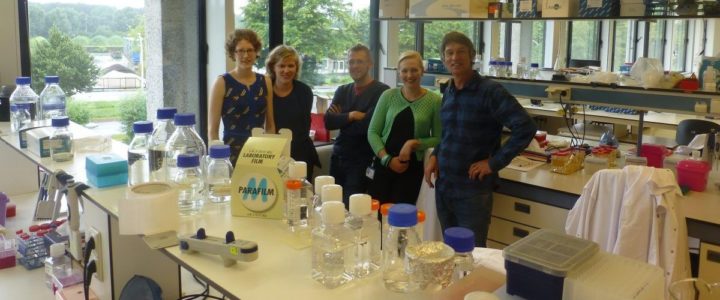With $210,000 in grants from FRAXA over 1999-2010, Dr. Frank Kooy has studied the involvement of the GABAergic system in Fragile X syndrome, at the University of Antwerp, Belgium.
Read more1994-2000 Grants
Targeting mGluR-LTD to Treat Fragile X Syndrome

With grants from FRAXA Research Foundation from 2000-2010, Dr. Kimberly Huber and her team at the University of Texas conducted several studies on the relationship between mGluR5 and Fragile X syndrome. Dr. Huber made the original discovery of the mGluR Theory of Fragile X when she was a postdoctoral fellow in the lab of Dr. Mark Bear, with her first FRAXA grant in 2000.
Read moreMouse Models of Fragile X Syndrome

Dr. Ben Oostra and his team at Erasmus University completed and published multiple studies related to Fragile X syndrome. They created the first Fragile X knockout mouse model and went on to perform many critical studies in Fragile X mouse models.
Read moreBasic Mechanisms of Disease and Potential Therapeutic Strategies

With $245,000 in grants from FRAXA Research Foundation, Dr. Stephen Warren and his lab at Emory University studied all aspects of Fragile X syndrome, from the mechanisms of repeat expansion to high-throughput drug screens in the Drosophila model of Fragile X. The Warren lab made the original discovery of the Fragile X gene, FMR1, in collaboration with the Nelson and Oostra labs, and is recognized internationally as a leader in molecular genetics. Recent projects include establishment of induced pluripotent stem cell lines from Fragile X patients, and determination of other forms of mutation in the Fragile X gene, other than the most common trinucleotide repeat expansion.
Read moreRole of FMRP in the Regulation of Synaptic Plasticity

With more than $1,000,000 from FRAXA Research Foundation over 13 years, Drs. William Greenough and Ivan-Jeanne Weiler at the University of Illinois uncovered the role of FMRP at synapses, leading to much of the subsequent research on Fragile X syndrome.
Read moreTherapeutic Interventions in FMR1 Knockout and Transgenic Mice: Role of the FMR1 Gene

With a $229,000 grant from FRAXA Research Foundation in 2006, Drs. Richard Paylor, David Albeck, and Francis Brennan at the Baylor College of Medicine found that, in mice as in humans, the level of Fragile X protein in brain cells plays a prominent role in determining levels of activity and anxiety.
Read moreTransgenic Mouse Models of Fragile X Syndrome

With $736,000 in grants from FRAXA Research Foundation over 2000-2007, Dr. Robert Bauchwitz at Columbia University developed 15 transgenic mouse models of Fragile X syndrome, using them to evaluate a range of experimental treatments. Results published.
Read moreReactivating the FMR1 Gene

With a $171,600 grant from FRAXA Research Foundation from 1998-2004, Dr. Andre Hoogeveen and his team at Erasmus University researched methods to reactivate the Fragile X gene.
Read moreRole of Experience in Regulating Levels of the Fragile X Protein

FRAXA awarded $29,000 in 2001 and $20,000 in 2000 to Kenneth J. Mack, MD, PhD — Mayo Clinic with Peter K. Todd, MD, PhD, Postdoctoral Fellow. While a professor at University of Wisconsin-Madison, Dr. Mack investigated whether and how FMRP levels are regulated in response to neuronal stimulation in vivo (in live animals). He looked at the effects of seizures and of experience in his experiments. Dr. Mack and colleagues published their findings.
Read moreUnderstanding the Function of Fragile X Protein in Drosophila

With a $105,000 grant from FRAXA Research Foundation from 2000-2003, Drs. Haruhiko Siomi and Mikko Siomi at Tokushima University researched approaches to characterize the Drosophila homolog of FMR1 and its associated molecules, and to identify molecular pathways that are involved in the cellular processes which are affected by the loss-of-function of Drosophila FMR1.
Read moreIsolating and Characterizing the mRNAs That Bind FMRP

With $60,000 in grants from FRAXA Research Foundation from 1998-1999, Dr. Robert Denman and his team at the New York State Institute for Basic Research explored how FMRP possibly functions.
Read moreProspects For Gene Therapy in the Fragile X
With a $90,000 grant from FRAXA Research Foundation from 2000-2002, Dr. Mario Rattazzi at the New York State Institute for Basic Research explored gene therapy: ways to transfer the FMR1 gene across the blood-brain-barrier in normal rats and mice, and then in FMR1 knockout mice. Results published.
Read morePrepulse Inhibition in Fragile X
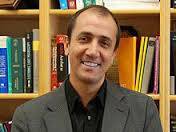
With a $27,000 grant from FRAXA Research Foundation in 1999, Dr. Alcino Silva and his team examined prepulse inhibition in Fragile X mice and children with Fragile X.
Read moreIdentification of Specific RNA Targets of FMRP
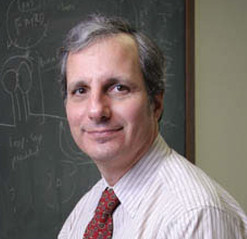
With a $70,000 grant from FRAXA Research Foundation from 1999-2001, Dr. Robert Darnell and his team at Rockefeller University made significant contributions towards understanding how FMRP functions and how the brain is affected without it. Results published.
Read moreTransgenic Mouse Model Studies of Fragile X Syndrome
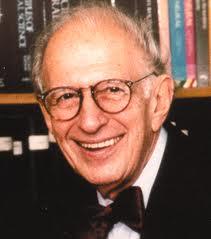
With a $410,000 grant from FRAXA Research Foundation from 1999-2001, Dr. Eric Kandel and his team at Columbia University researched development of Fragile X mice to further aid future studies of Fragile X research.
Read moreMolecular Interactions Between FMRP and Protein Translation Apparatus
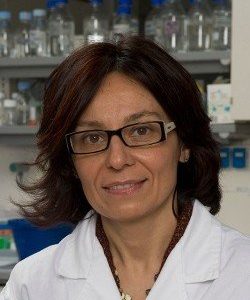
With a $65,000 grant from FRAXA Research Foundation from 2000-2001, Dr. Claudia Bagni focused on understanding the specific molecular interactions which regulate protein synthesis, and how they are altered in Fragile X. Dr. Bagni has moved from the University of Rome to VIB in Leuven, Belgium. Results published.
Read moreRole of FMRP in Development and Maturation of Spine Synapses

With a $160,000 grant from FRAXA Research Foundation from 1999-2000, Drs. Menahem Segal at the Weizmann Institute and Katarina Braun at the Leibnitz Institute for Learning researched the development of Fragile X syndrome in a controlled, in vitro test system. Results published.
Read moreNeural Network Model of Working Memory in Fragile X Syndrome

With a $67,000 grant from FRAXA Research Foundation in 2000, Dr. Mina Johnson-Glenberg at the University of Wisconsin researched how long-term and working memory was affected in individuals with Fragile X syndrome.
Read moreMelatonin Clinical Trial in Fragile X

With a $60,000 grant from FRAXA Research Foundation from 1998-1999, Dr. Randi Hagerman and her team at the University of California studied the effects of different compounds on individuals with Fragile X syndrome, focusing specifically on melatonin. Results published.
Read moreFMR1 Gene Regulation

With a $30,000 grant from FRAXA Research Foundation in 1999, Dr. Paul Hagerman and his team at the University of California researched how to re-activate the FMR1 gene and how to measure its levels.
Read moreLongitudinal Study of Children with Fragile X
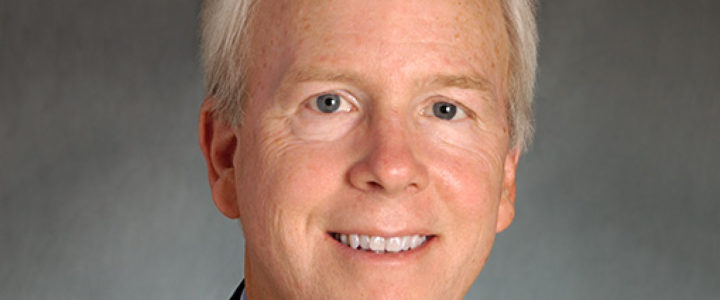
With a $30,000 grant from FRAXA Research Foundation in 2000, Dr. Don Bailey and his team at the University of North Carolina studied the longitudinal development of children, with a focus on educational strategies and development of language. They have contributed greatly to our understanding of the course of Fragile X over a lifetime, as well as the frequency of autism and other behavioral complications in the Fragile X population.
Read moreTransport of the Fragile X Protein

With a $123,000 grant from FRAXA Research Foundation from 1998-2000, Dr. Alan Tartakoff at the Case Western Reserve University studied how proteins communicate with the brain, how and when FMRP travels in the brain, and how to introduce more antibodies to Fragile X research.
Read moreCharacterization of Two Novel FMRP Interacting Proteins

With a $30,000 grant from FRAXA Research Foundation in 2000, Dr. Jean-Louis Mandel and his team at the University of Strasbourg studied the function of two proteins to better understand the affects of the absence of FMRP.
Read moreSynaptic Plasticity and Olfactory Learning in Fragile X

With a $40,000 grant from FRAXA Research Foundation in 2000, Dr. John Larson and his team at the University of Illinois Chicago used olfaction (sense of smell) in mice as a neuro-behavioral model system for human memory. They characterized olfactory sensitivity, learning, and memory in FMR1 knockout mice as compared to wild-type (normal control) mice.
Read moreReactivation of the FMR1 Gene in Fragile X Patients Cells in Culture

With a $62,000 grant from FRAXA Research Foundation from 1999-2000, Dr. Giovanni Neri and his team at Universita Cattolica del S. Cuore explored possible strategies to turn the Fragile X gene back on.
Read more
